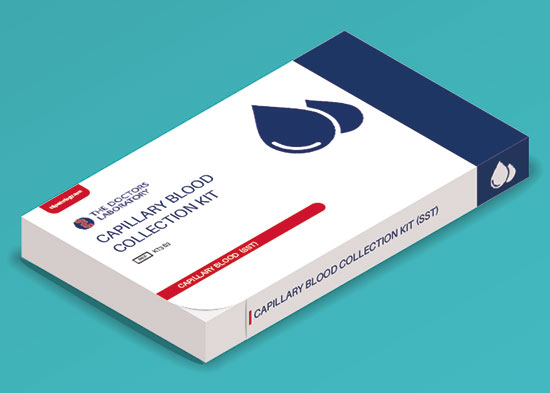The DHEA Sulphate (DHEAS) Blood Test measures the level of dehydroepiandrosterone sulphate (DHEAS) in the blood. DHEAS is a hormone produced primarily by the adrenal glands, and it serves as a precursor to other sex hormones, including testosterone and oestrogen. This test is often used to evaluate adrenal gland function and investigate hormone-related conditions.
Blood Test Cost – £89
Purpose of the DHEA Sulphate (DHEAS) Blood Test
- Evaluate Adrenal Gland Function
- Purpose: To assess the production of adrenal hormones.
- Use: Helps diagnose adrenal gland disorders such as adrenal insufficiency or hyperplasia.
- Investigate Hormonal Imbalances
- Symptoms: Hirsutism (excessive hair growth), virilisation (development of male characteristics in women), acne, menstrual irregularities, infertility.
- Use: Helps identify the cause of these symptoms by evaluating androgen levels.
- Diagnose and Monitor Adrenal Tumors or Cancer
- Purpose: To detect the presence of adrenal tumours that may produce excess DHEAS.
- Use: Part of the diagnostic process for adrenal tumours and monitoring treatment efficacy.
- Assess Precocious Puberty
- Purpose: To determine if early puberty is due to adrenal gland dysfunction.
- Use: Helps diagnose the cause of early onset of puberty in children.
Test Preparation and Procedure for DHEA Sulphate (DHEAS) Blood Test
- Preparation: No specific preparation is generally required. However, follow any instructions provided by your healthcare provider.
- Procedure: A blood sample is drawn from a vein, typically in the arm. The sample is then analyzed in a laboratory to measure DHEAS levels.
Normal DHEAS Levels
DHEAS levels vary by age and sex:
- Men: Typically 280-640 µg/dL (varies by age)
- Women: Typically 65-380 µg/dL (varies by age)
- Children: Reference ranges depend on the stage of puberty
Factors Affecting DHEAS Levels
- Age: DHEAS levels peak in early adulthood and decline with age.
- Sex: Men generally have higher DHEAS levels than women.
- Health Conditions: Adrenal gland disorders, PCOS, and certain tumours can affect DHEAS levels.
- Medications: Certain medications, such as corticosteroids or hormonal therapies, can influence DHEAS levels.
Follow-Up
- Consultation: Discuss the results with your healthcare provider to understand the implications and potential next steps.
- Additional Testing: If abnormal levels are detected, further tests may be recommended to diagnose the underlying cause. This may include other hormone tests (such as cortisol, testosterone, or oestrogen), imaging studies (like CT or MRI scans of the adrenal glands), or a detailed endocrine evaluation.
- Treatment: Based on the underlying cause, treatment options may include medications to manage hormone levels, surgery to remove tumours, or other therapies to address specific conditions such as adrenal insufficiency or PCOS.
Conclusion
The DHEA Sulphate (DHEAS) Blood Test is an important diagnostic tool for evaluating adrenal gland function and investigating hormonal imbalances. Regular monitoring and thorough consultation with a healthcare provider ensure accurate diagnosis and effective management of conditions related to abnormal DHEAS levels. This test provides valuable insights into adrenal health and hormone-related issues, contributing to overall well-being.
Results – 4hrs from Laboratory receiving sample
To Book with our Phlebotomist please click the calendar below and find a suitable time for your appointment
DHEA Sulphate (DHEAS) – Self Test Kit
Our test at home kit for DHEA Sulphate (DHEAS). A capillary blood sample collection kit…







